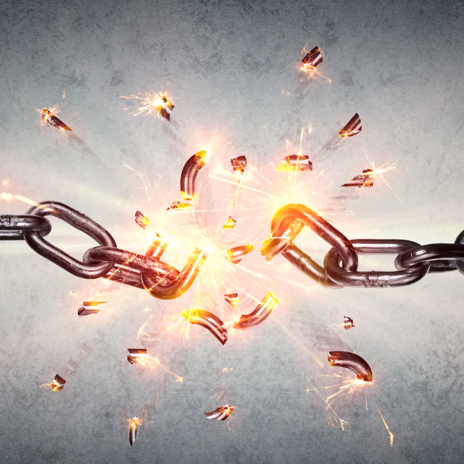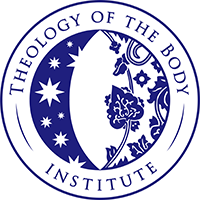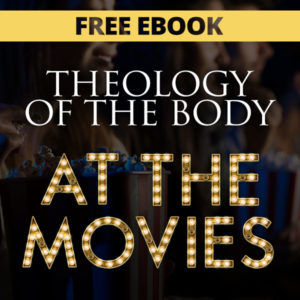

Are You Calling Slavery Freedom? A Look at True Freedom on Independence Day
Are You Calling Slavery Freedom? A Look at True Freedom on Independence Day

The Fourth of July is a day of celebrating freedom, a value at the center of the American experiment. But in recent decades, it is not hard to recognize that freedom has been confused with its perennial counterfeit: license.
The Supreme Court of the United States enshrined this false vision of freedom into law when, defending the “right” of a mother to terminate the life of her unborn child in a famous 1992 case, it asserted the following: “At the heart of liberty is the right to define one’s own concept of existence, of meaning, of the universe, and of the mystery of human life.”
What I think the Supreme Court got correct is the fact that at the root of all moral debates are questions and assumptions about …
- the meaning of freedom
- the meaning of truth
- the meaning of meaning
- the meaning of existence
- the meaning of the universe
- and the mystery of human life.
Is freedom really the right to define my own concept of reality? If so, then debate about anything is pointless. Disagreement about anything is pointless. I would argue (arguing, again, is pointless, if there is not some point you believe to be true … and true for everyone) that, if we look below the surface, we will discover that even the people who drafted the U.S. Supreme Court statement above do not – in reality (if there is such a thing) – believe their statement to be true.
Here’s why:
Suppose I, exercising the right to “define my own concept of human life,” insisted that everyone in the world is subordinate to me and owes me unfaltering allegiance. If the Supreme Court had the opportunity to weigh in, it would rightly correct my faulty concept of reality. But by doing so, the Supreme Court would also be correcting its own faulty concept of reality, which stated that I was allowed to make up my own concept of reality.
Why am I not allowed to make up my own concept of reality? Because, despite however much we may want to resist this fact (and even try to enshrine the contrary in law in order to justify doing things that are contrary to the nature and reality of human life), reality exists outside of us and independently of anything we think or have to say about it. For example, if I drank a cup of poison without knowing it was poison, I may not have committed suicide, but it will still kill me. Because whether I know it’s poison or not or think it’s poison or not has no bearing on whether it is poison or not. Reality exists outside of me and is independent of anything I think or have to say about it.
In other words, because reality is given to us, it is something we can discover, but it is not something we can invent. And that means there are universal truths to which we are all answerable, whether we like that fact or not. For much of my life I really (really!) did not like that fact and rebelled against it strongly. It seemed like oppression. It seemed to rob me of my own freedom and self-determination, which I have always been (and still am) quite determined to protect. I have always been a champion of people’s freedom. I have had other people’s ideas (religious or otherwise) shoved down my throat on many occasions and it has always made me run the other way.
In my rebellion against people’s truth claims, I insisted that there was no truth. The problem is, that itself is a truth claim. We get stuck in a loop here: in our very attempts to deny truth, we affirm it (if it is true that there is no truth, it is false that there is no truth because it’s true that there’s no truth … so there’s truth). I’d suggest the deeper question is this: is the truth we claim to be true actually true? What is the truth …
- about the meaning of freedom
- the meaning of truth
- the meaning of meaning
- the meaning of existence
- the meaning of the universe
- and the mystery of human life?
Everyone can recognize pretty easily that any claim to truth without respect for other people’s freedom leads to tyranny (the imposition of one’s view on others). What’s more difficult to see is that any claim to freedom without respect for truth also leads to tyranny. Here’s why: If there is no objective truth to which we can all look and to which we are all answerable, then might makes right – those with the most power, the most money, the most muscle and media influence will impose their views on the rest of us.
This is why Jesus insisted “the truth will set you free.”
I have come to see that if I am to be a champion of people’s authentic freedom, I must also be a champion of the truth that sets us free – free to be the men and women God created us to be. And sexual freedom is at the heart and center of this. But what is sexual freedom? Our culture talks a big line about sexual liberation. But this typically means: do whatever you want, however you want, with whomever you want, without any restraint, without ever saying no.
Is such a person free? Is a person who has no restraint with alcohol (someone who cannot say no to his next drink) free? Or is he in chains? I look around our world today and the claim of sexual “liberation” looks a lot more like sexual addiction to me. We’re embracing slavery to our passions and calling it freedom.
I want to propose to the world (never impose!) that sexual freedom is not the liberty to indulge your compulsions, but liberation from your compulsions to indulge. Only such a person is free with the freedom of self-giving, self-sacrificial love – the love we all yearn for and the love we all deserve.
In my travels around the globe, I have asked hundreds of thousands of women this question: How many of you want to be in relationships with people who cannot say no to their sexual desires? Never has a woman raised her hand. I think women intuit this truth (men also realize it, but it takes more for them to do so), that when people cannot say no to their sexual desires, their yes means nothing. When you’re in relationships with people who cannot say no to their sexual desires, you’re not being loved, you’re being used. You’re an outlet for that person’s lack of control and that person’s selfish desire for pleasure. Tragically, what we often call love, when we take a closer look, amounts to little more than mutual using. And I’d propose that the opposite of love is not hatred per se, but using someone as a means to an end.
A culture that confuses using with “love” is not free, it’s enslaved. How can we promote true freedom this 4th of July?



